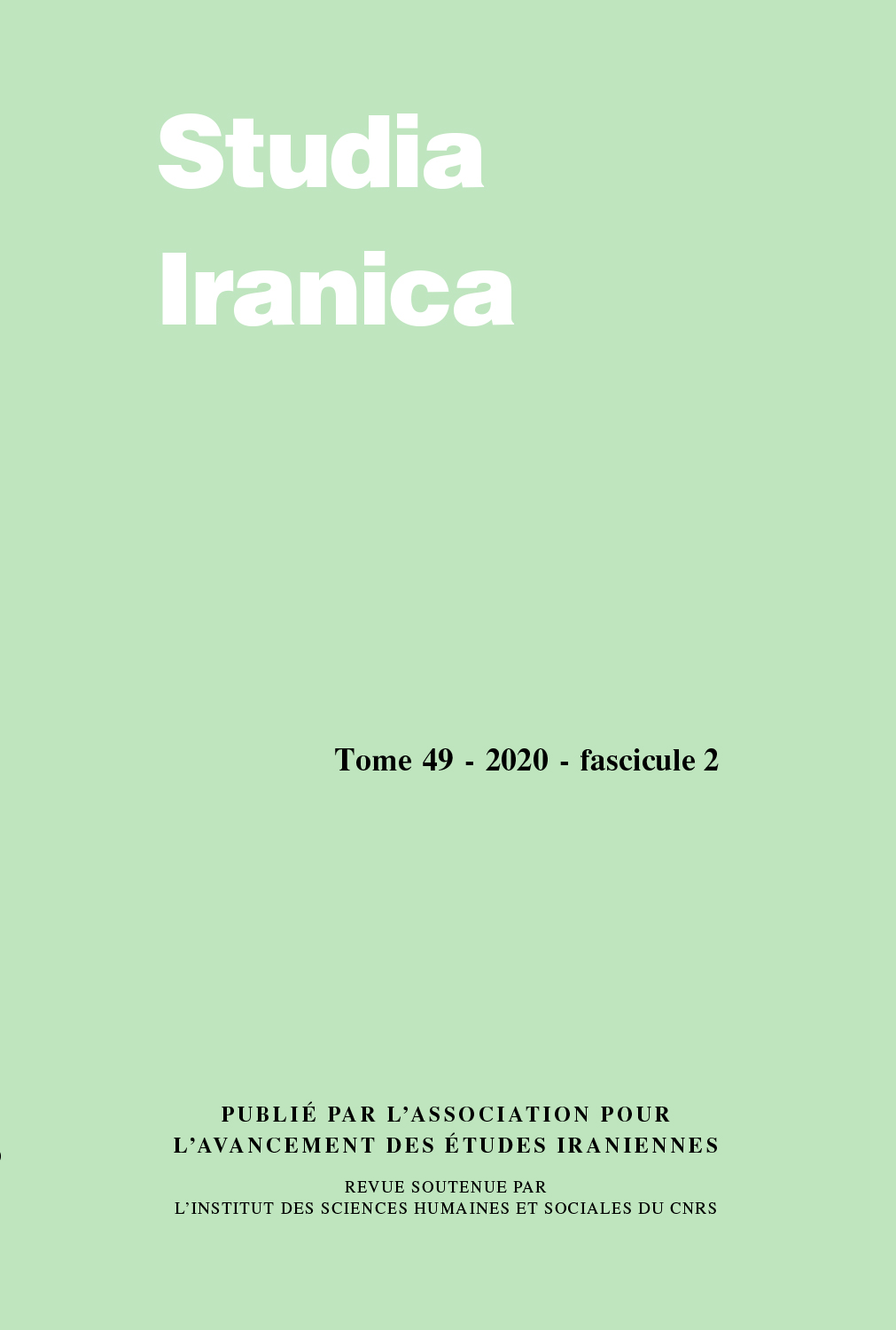 previous article in this issue previous article in this issue | next article in this issue  |

Preview first page |
Document Details : Title: The Heroic Mold in 'Imrānī's Fatḥ-Nāmah ['The Book of Conquest'], 15th Century Author(s): MOREEN, Vera B. Journal: Studia Iranica Volume: 42 Issue: 1 Date: 2013 Pages: 71-90 DOI: 10.2143/SI.42.1.2988863 Abstract : The Fatḥ-nāmah ['The Book of Conquest'] of the Judeo-Persian poet 'Imrānī (1454-ca. 1536) versifies the biblical books of Joshua, Judges, I Samuel and part of II Samuel. It is a conscious imitation and continuation of the work of Shāhīn (14th c.), who versified substantial parts of the Pentateuch. The martial content of the Fatḥ-nāmah makes 'Imrānī's reliance on the language and imagery of the Shāh-nāmah compelling especially as the poet also adds scenes that are not in the Bible but are in consonance with the ethos of the Iranian epic. Nevertheless, he remains faithful to the spiritual outlook of the biblical narrative. Le Fatḥ-nāmah ['Livre des Conquêtes'] du poète judéo-persan 'Imrānī (1454-env. 1536) est une version versifiée de plusieurs livres de la Bible: de Josué, des Juges, de Samuel I, et d'une partie de Samuel II. Il s'agit d'une imitation, réalisée à dessein, en vue de la continuer, de l'oeuvre de Shāhīn (XIVe s.) qui avait mis en vers de substantielles parties du Pentateuque. Le ton martial du Fatḥ-nāmah fait ressortir de façon particulièrement intéressante la dépendance du texte de 'Imrānī par rapport à la langue et à l'imagerie du Shāh-nāmah, d'autant plus que le poète ajoute des scènes absentes de la Bible mais qui sont en accord avec l'éthos de l'épopée iranienne. L'auteur demeure, malgré cela, fidèle à la perspective spirituelle du récit biblique. |
|


